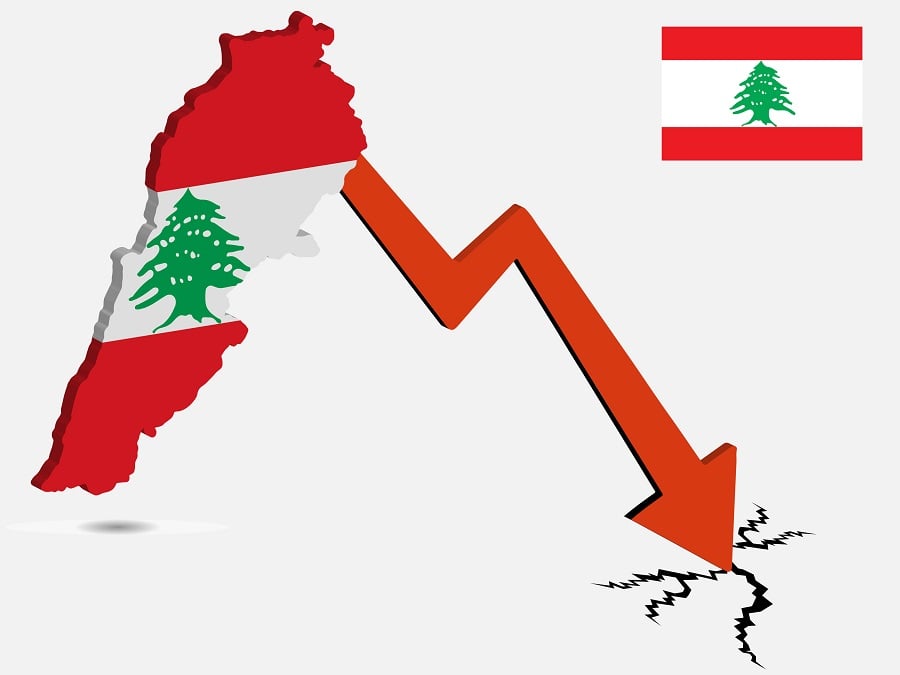On the impact of the dramatic scene that Lebanon is experiencing with the continued significant deterioration of the local currency, the International Monetary Fund (IMF) warned on Thursday that Lebanon is in a very dangerous situation, a year after its pledge to reforms that it failed to implement, and urged the Lebanese government to stop borrowing from the Central Bank.
Lebanon signed an agreement on the level of employees with the International Monetary Fund in April of the year 2022, provided that the final signing takes place with it after it approves a set of reforms stipulated by the IMF as a transit card to obtain an amount of $3 billion for a period of four years. However, Lebanon, about a year after the initial signing, has not reached the implementation of what is required of it, at a time when hopes are diminishing that a final agreement can be reached.
The head of the fund’s mission, Ernesto Rigo Ramirez, urged, at a press conference in Beirut, the authorities to expedite the implementation of the fund’s requirements for obtaining a rescue package.
“We were expecting more in terms of the implementation and passage of legislation,” related to the required reforms, said Rigo Ramírez, recalling an earlier statement by the Fund that progress was “very slow” in this regard.
“Lebanon is in a very dangerous situation,” he added.
Read: Central Bank governance in Lebanon faces a new crisis
And the IMF warned, in a written statement on behalf of the fund’s experts, at the conclusion of the Article IV consultation mission for the year 2023, that Lebanon “will plunge into an endless crisis” in the event that rapid reforms are not implemented.
A mission from the International Monetary Fund visited the Lebanese capital, Beirut, from March 15-23, 2023, to conduct Article IV consultations, assess the economic situation, and discuss policy priorities.
According to the mission statement, “Unemployment and poverty levels are expected to remain high, with economic potential continuing to decline. Maintaining the status quo will further undermine confidence in national institutions and continuing to postpone reforms will lead to the continuation of restrictions that brake the economy, with its consequences.” It will be difficult for the country as a whole to remove them, especially for low- to middle-income families. As the feeling of uncertainty increases, the external position will become weaker and the BDL’s scarce international reserves will continue to bleed. The exchange rate decline and rising inflation will continue unabated, leading to an acceleration of dollarization risks. “The economy will become more informal, reducing the scope for tax collection and further constraining budgetary spending, with an increased risk of illicit activities entrenching in the economy.”
The mission stressed that “without acknowledging the large gap in the banking sector and addressing it credibly, banks will not be able to provide sufficient credit to support the economy, and small depositors will continue to suffer heavy losses on their withdrawals in foreign exchange, while medium to large deposits remain locked up indefinitely.” On the other hand, the pace of migration outside the country, especially skilled migration, is expected to accelerate, further weakening future growth opportunities.”
The economy was paralyzed by the collapse of the currency, which lost about 98 percent of its value against the dollar since 2019, and that pushed inflation to the hundreds and caused widespread poverty and increased migration from the country.
The government estimates total losses in the financial system at more than $70 billion, most of which is owed to the Banque du Liban.
“No more borrowing from the central bank,” Rigo Ramirez said. “Over the years, the government has been borrowing from the central bank. Not only in the past (but also) in the last few months, which is something we recommended to stop.”
The IMF called for distributing financial sector losses in a way that preserves the rights of small depositors and limits resorting to state assets. Senior politicians and banks opposed the move, delaying the recovery.
“Suffice it to say that the loss is so great that, unfortunately, there must be a distribution of losses between the government, banks, and depositors,” Rigo Ramirez said.
However, he said the IMF “will never withdraw” from efforts to assist a member country, and there is no deadline for Lebanon to implement reforms.
According to the IMF statement Thursday, the Banking Secrecy Law should be amended again to “address outstanding critical weaknesses.”
Rigo Ramirez said, “Lebanon should move towards an exchange rate determined by the market, instead of maintaining multiple exchange rates, including the exchange rate on the Banque du Liban exchange platform, which is not determined by market forces.”
For more on Lebanon, click here.








